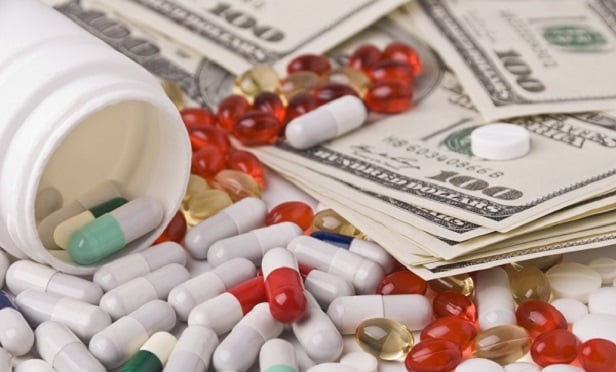 Under the Democratic leadership plan, companies that refuse to comply with negotiations would find themselves slapped with an excise tax equivalent to 50 percent of sales on the drug in the previous year. (Photo: Shutterstock)
Under the Democratic leadership plan, companies that refuse to comply with negotiations would find themselves slapped with an excise tax equivalent to 50 percent of sales on the drug in the previous year. (Photo: Shutterstock)
As House Democrats hash out a proposal empowering the federal government's top health official to negotiate lower drug prices, House Speaker Nancy Pelosi is taking it a step further and pushing a plan that could benefit even those Americans with private health insurance.
A draft plan spearheaded, but not yet released, by Pelosi and other House Democratic leaders would ensure that prices negotiated on the most expensive drugs would apply not only to the government but to all payers, including employers and insurers, a Democratic aide said.
Continue Reading for Free
Register and gain access to:
- Breaking benefits news and analysis, on-site and via our newsletters and custom alerts
- Educational webcasts, white papers, and ebooks from industry thought leaders
- Critical converage of the property casualty insurance and financial advisory markets on our other ALM sites, PropertyCasualty360 and ThinkAdvisor
Already have an account? Sign In Now
© 2024 ALM Global, LLC, All Rights Reserved. Request academic re-use from www.copyright.com. All other uses, submit a request to [email protected]. For more information visit Asset & Logo Licensing.








